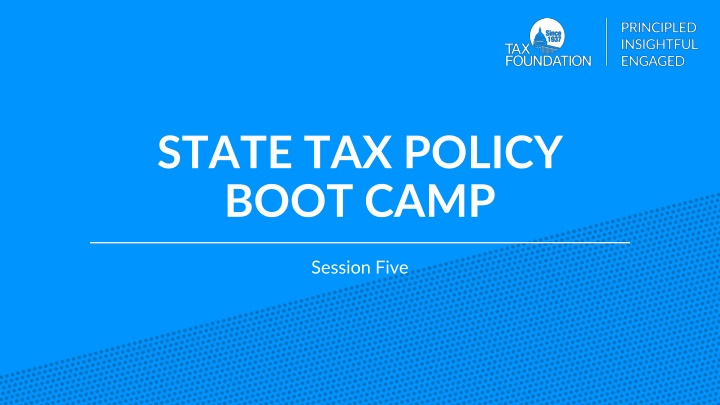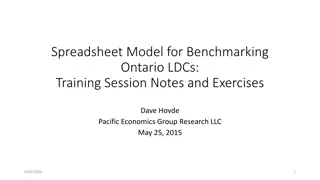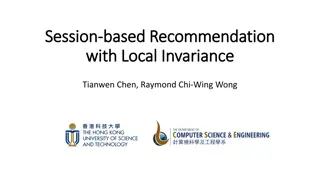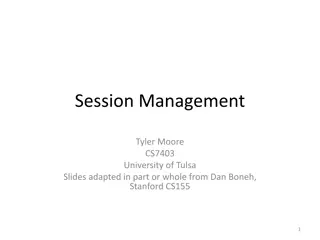
State Tax Policy Boot Camp: New Issues in State Taxation Strategies
Explore the latest challenges and strategies in state taxation, covering topics such as wealth taxes, financial transaction taxes, digital advertising and data taxes, excess compensation taxes, and business head taxes. Learn about constitutional constraints, valuation challenges, migration effects, and more. Stay informed on the evolving landscape of state tax policies.
Download Presentation

Please find below an Image/Link to download the presentation.
The content on the website is provided AS IS for your information and personal use only. It may not be sold, licensed, or shared on other websites without obtaining consent from the author. If you encounter any issues during the download, it is possible that the publisher has removed the file from their server.
You are allowed to download the files provided on this website for personal or commercial use, subject to the condition that they are used lawfully. All files are the property of their respective owners.
The content on the website is provided AS IS for your information and personal use only. It may not be sold, licensed, or shared on other websites without obtaining consent from the author.
E N D
Presentation Transcript
STATE TAX POLICY BOOT CAMP Session Five
NEW ISSUES IN STATE TAXATION WEALTH & MARK-TO-MARKET TAXES Constitutional constraints in many states Uniformity clauses, prohibitions on taxing intangible personal property, or limits on taxing income from property Mark-to-market taxation of capital gains income proposed as an alternative in NY, elsewhere Both wealth and mark-to-market taxes have an inherent valuation challenge for nontraded assets, and taxes on illiquid assets (including business ownership) can require the asset to be sold to pay the tax @TaxFoundation TAX FOUNDATION
NEW ISSUES IN STATE TAXATION FINANCIAL TRANSACTION TAXES Can be imposed on the exchange, the processing of the transaction, or the trader Can reduce high frequency trading, which may reduce volatility (evidence is mixed) but at the cost of reduced liquidity and price discovery Raises transaction costs Potentially strong effect on migration and avoidance, particularly on exchange- or transaction-level taxes, which may be possible for the industry to avoid entirely @TaxFoundation TAX FOUNDATION
NEW ISSUES IN STATE TAXATION DIGITAL ADVERTISING & DATA TAXES Imposed on large ad platforms but economic incidence is largely on in-state businesses Apportioning digital ads to a state is difficult Likely violation of Internet Tax Freedom Act Tension with Dormant Commerce Clause Digital advertising is already taxed in U.S., is a business input, and presents few externalities that could justify a unique tax on it Data taxes would be an intangible property tax (or structured as a tax on sale of data) Difficult to value or regulate, and imposes significant burden on interstate commerce @TaxFoundation TAX FOUNDATION
NEW ISSUES IN STATE TAXATION EXCESS COMPENSATION TAXES & BUSINESS HEAD TAXES Excess compensation (or CEO excess pay taxes) are a business surtax based on the ratio of the pay of the top-compensated employee and the median full-time employee Imposed in Portland and now in San Francisco A state-level tax could see a legal challenge by imposing tax based on foreign characteristics (i.e., compensation of individuals located outside the state) Business head taxes are per-employee taxes remitted by businesses May apply to large employers, including low-margin employers like supermarkets Governments often incentivize job creation, making a tax on job creation highly atypical Thus far only imposed in Mountain View, CA, after immediate repeal in Seattle, WA and indefinite postponement of consideration in Cupertino, CA @TaxFoundation TAX FOUNDATION






















